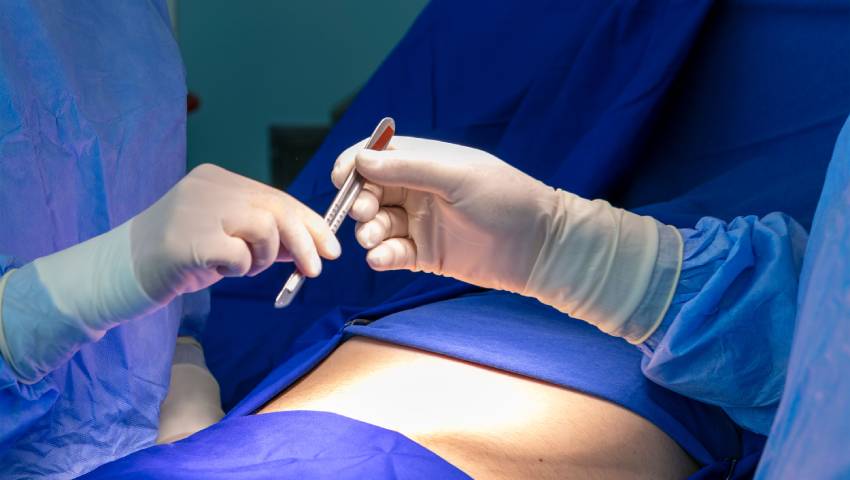
- 04/01/2025
- Dr. Samrat Jankar
- 0 Comments
- Blog
Surgical Options for Crohn’s and Colitis Patient
Living with inflammatory bowel diseases (IBD) like Crohn’s disease and ulcerative colitis can be difficult. Crohn’s disease and ulcerative colitis are chronic inflammatory conditions that affect the gastrointestinal tract. While medical management is the first line of treatment, some patients may need surgical intervention to manage severe symptoms, complications, or medication resistance.
Dr. Samrat Jankar, a leading gastroenterologist and gastrointestinal surgeon in Pune, India, provides comprehensive surgical solutions tailored to individual needs. Let’s explore the surgical options available for Crohn’s and colitis patients and when these might be required.
When is Surgery Necessary for IBD?
Surgery is typically considered for IBD patients in the following situations:
- Failure of Medical Therapy: When medications no longer control symptoms or sustain remission.
- Severe Symptoms: When symptoms persist despite optimal medical therapy.
- Complications: Conditions like bowel obstruction, fistulas, abscesses, or perforation.
- Cancer Risk: Precancerous changes or cancer in the colon or rectum.
- Medication Intolerance: When side effects of medicines outweigh their benefits.
- Quality of Life: Significant improvement in the patient’s daily life is possible through surgical intervention.
Surgical Options for Crohn's Disease:
Crohn’s disease can affect any part of the gastrointestinal tract, so surgical approaches vary depending on the location and severity of the disease. Common surgical procedures include:
- Strictureplasty: Used to widen narrowed sections of the intestine caused by scar tissue.. Maintains the bowel and improves function.
- Bowel Resection: Involves removing the diseased section of the intestine and reconnecting the healthy ends. Effective for managing localized disease and complications like obstruction.
- Fistula Repair: Targets abnormal connections between the bowel and other organs or skin. May involve surgical drainage and repair of the affected area.
- Proctocolectomy with Ileostomy: Complete removal of the colon and rectum with the creation of an ileostomy (a stoma for waste elimination). Often reserved for severe cases.
Surgery is typically considered for IBD patients in the following situations:
- Failure of Medical Therapy: When medications no longer control symptoms or sustain remission.
- Severe Symptoms: When symptoms persist despite optimal medical therapy.
- Complications: Conditions like bowel obstruction, fistulas, abscesses, or perforation.
- Cancer Risk: Precancerous changes or cancer in the colon or rectum.
- Medication Intolerance: When side effects of medicines outweigh their benefits.
- Quality of Life: Significant improvement in the patient’s daily life is possible through surgical intervention.
Surgical Options for Ulcerative Colitis:
Ulcerative colitis primarily affects the colon and rectum, and surgery can be curative. Common surgical options include:
- Colectomy: Removal of the whole colon while preserving the rectum. Often combined with medication for rectal inflammation.
- Proctocolectomy with Ileal Pouch-Anal Anastomosis (IPAA): Involves removing the colon and rectum and creating a pouch from the small intestine to restore bowel function. Eliminates the need for a permanent stoma.
- Proctocolectomy with Ileostomy: Removal of both the colon and rectum with a permanent ileostomy. Recommended for patients unfit for IPAA.
Advances in Surgical Techniques:
Dr. Samrat Jankar specializes in minimally invasive surgical techniques, including laparoscopic and robotic-assisted procedures, which offer numerous benefits:
- Reduced pain and faster recovery.
- Smaller incisions and less scarring.
- Lower risk of complications.
Benefits of Surgery:
- Symptom Relief: Surgery can provide effective relief from symptoms such as abdominal pain, diarrhea, and bleeding that do not respond to medical treatment.
- Prevention of Complications: By removing damaged parts of the intestine, surgery can prevent further complications such as perforations, strictures, and abscesses.
- Improved Quality of Life: Many patients report an improved quality of life after surgery, with fewer hospital visits and a return to more normal activities.
- Lower risk of cancer: Particularly for those with long-term inflammation.
- Preservation of bowel function: State-of-the-art surgical techniques aim to maintain as much bowel function as possible, enhancing post-operative recovery and quality of life.
Post-Surgical Care and Recovery:
Surgery for Crohn’s or colitis is just one step in the treatment journey. Post-surgical care focuses on:
- Monitoring for complications like infection or bowel leakage.
- Nutritional support to aid recovery.
- Long-term follow-up to prevent recurrence (in Crohn’s) and manage lifestyle changes.
Why Choose Dr. Samrat Jankar?
Dr. Jankar’s expertise in colorectal surgery in Pune, India ensures that patients receive personalized care. His holistic approach combines cutting-edge technology with compassionate care to deliver the best outcomes for Crohn’s and colitis patients.
Conclusion:
While surgery is not the first-line treatment for Crohn’s and colitis, it plays a vital role in managing complications and improving quality of life when other treatments fail. If you’re considering surgical options, consult Dr. Samrat Jankar to understand the best approach for your condition. With his guidance, you can take confident steps toward better health and well-being.
For expert advice on Crohn’s and colitis treatment, book an appointment with Dr. Samrat Jankar today.
